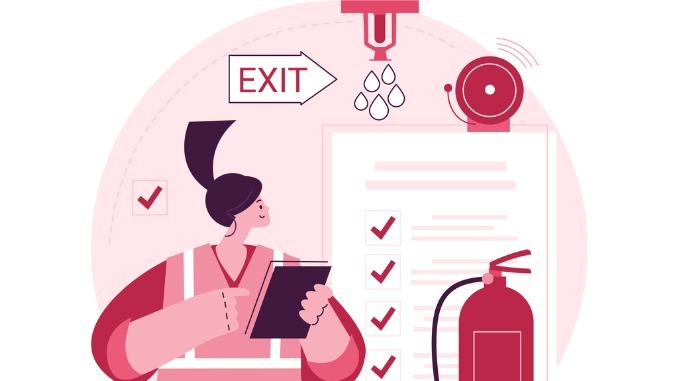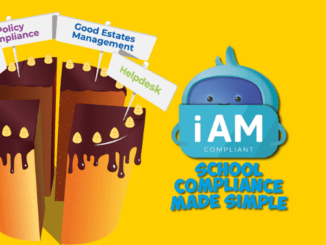
Health and safety is a key responsibility for school business managers, and it can feel overwhelming due to its many challenges and required knowledge. In this article, Sharon Marsh shares tips on effectively staying organised
In my experience, the schools that have the most success when it comes to health and safety have well-informed, trained staff, good systems in place and use experts to ensure that they are addressing tasks properly and compliantly. These days the most effective and efficient systems tend to be online where they can be administered and updated with minimum fuss. Long gone are the days of paper files scattered around countless offices in school with various updates missing or pieces of paper lost!
For things such as your Fire Risk Assessment I believe it is always best to engage the services of an expert. The guidance is that this should be carried out by a ‘competent’ person, but I would always recommend using a suitably qualified person. They will be able to provide you with a comprehensive document based on your school and their findings. This document will not only show where you are compliant, but also indicate the works that may be required to ensure that the building and all the people that use it are safe. You can then use this to inform your maintenance and development plans for the building.
Updating Training
Some health and safety training needs to be refreshed/updated every year, and this is often provided through an online system that staff can sign into to access the training allocated to them. One advantage of this is that the system administrator will be able to see who has completed the training, rather than relying on asking staff to sign a piece of paper to say that they have read and understood the task.
Lots of schools still also carry out face-to-face training for some subjects. This can be a great learning tool, as it gives people the opportunity to ask questions and discuss the topic. I believe a variety of methods should be used to deliver training. Having said that, in my experience having an online tracking/reporting system does help us to administer health and safety and to be able to get an accurate overview quickly.
These online systems normally have the functionality for pieces of training and work to be delegated to users so they can carry out tasks relevant to their role. They can also have a ‘ticket system’ so that staff can report anything that is concerning them, from broken taps to someone having an accident. These can then be tracked so that the person with responsibility for ensuring the task is completed can check and chase efficiently.
Some of the subjects that can be covered using this type of system include:
Fire safety
First Aid
Manual Handling
Compliance checks
Outstanding and completed training
Risk assessments
Another advantage of an online system means that the information is all kept in one place and people can be given an access level dependent on their roles and responsibilities, so checks can be carried out less intrusively.
Recognised Qualifications
For school business managers and others in school who need to have a deeper understanding of health and safety, there are a variety of nationally and internationally recognised qualifications that can be considered. These include:
- The National Examination Board in Occupational Safety and Health (NEBOSH) Certificate or Diploma
- The Institute of Occupational Safety and Health (IOSH) Level 3, 5 or 6
- NVQs up to Level 6. These tend to follow the same units of study as an IOSH qualification, and you can apply for IOSH membership upon completion.
These courses can be delivered using a variety of methods including face to face, distance learning, in-company training and e-learning. Fees for these courses will vary depending on the training provider and the course that you undertake.
Whichever course you choose, it often contains 48 taught hours with a requirement for an additional 40 hours for individual study. The courses are usually assessed by written exam and a scenario-based assessment. These are all carried out online and are invigilated remotely.
Whilst deciding about embarking on any training, it is always a good idea to canvass your peers to see what has worked well for them, or what they would do differently if choosing with what they know now. We have a great network of peers who are always happy to share their thoughts and ideas and, in doing so, are also a great asset when making these decisions and your champion when undertaking this training and these tasks.



Be the first to comment